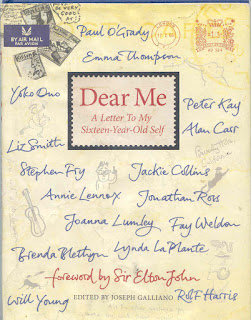Do you plan a visit to London and do you want to travel in the Victorian Age?
Or: are you a fan of Dickens's books and you can't wait to visit his London?
In both these cases I suggest you Dickens's London by Peter Clark published by Haus Publishing.
Five, intensive walks, where not only you will visit the main locations choosen by Dickens for his beloved, immense works, but you can also discover the daily, contemporary London.
The author warmly suggest to bring with you a London road atlas so that you can enjoy also London's food, taverns, restaurants for every wallet, and much more.
When Dickens was born London was a city in transformation. From a pre-industrialized city, populated by numerous horses, animals, and subsequent smells of every kind in the city, with the time slums were destroyed and a best modernity appeared to the horizon.
Dickens won't never forget that first imagine of London. He was a great observer, and knew London intimately.
Peter Clark followed, for being more accurate the expanded volume published by Robert Allbut London Rambles "en Zigzag" with Charles Dickens.
Once the author died in fact, for commemorate him, writers decided to create little books, booklets at first, with the most beloved places celebrated by Dickens in his numerous novels. Considering the success, these booklets became soon real and important books.
Immigration was a thematic lived by Dickens with the arrival in the city of people living in the countryside, but also with new immigrants from France, Italy. There was also a good community of Jewish, but in this sense Dickens was a very racist writer, and couldn't take in consideration people not born in his own country.
If added in his books, they had, most of the times, negative treats.
Each walk will take an entire day, if you take it seriously, so you should plan more than 5 days of vacation.
The first walk: From Trafalgar Square to Lincoln's Inn Fields the place where Dickens worked when little. To the north of it, you will find the National Gallery and the National Portrait Gallery, where you'll see a painting created by a friend of him. The portrait in the cover of this book. It is delicate and fascinating. Dickens was in his 20s.
Dickens didn't never return in the places where he worked in; he did it when that buildings pulled down, destroyed. Not before. David Copperfield's locations are these ones, while in Little Dorrit, Dickens focused on the changes of the latest thirty years in London.
Back on the Strand close to the Savoy Hotel lived Miss La Creevy,
Nicholas Nickleby.
From Lincoln's Inn Fields to the Mansion House the second walk. Chancery Lane the spine of legal London as says mr.Clark, here we meet the location of Bleak House, and close to, at Old Square Kenge and Carboy Mr.Pickwick's counsel Snubbing had his chambers.
And not only him...
Walk Three: from Holborn Circus to Soho Square. In this walks you will see three of the houses where Dickens lived in.
Great Expectations, The Pickwick Papers, David Copperfield, The Mystery of Edwin Drood, Martin Schuzzlewit, Barnaby Rudge...
From Bermondsey to Holborn Circus is a walk associated with the book Oliver Twist.
Mentioned also Newgate, a terrible english prison closed and destroyed later, in four books: Barnaby Rudge, A tale of teo Cities, Oliver Twist, Great Expectations.
The last walk from the Bank of England to Trafalgar Square and Westmister.
In these streets lived the first love of the beloved writer.
Scroodge's counting house around Cornhill. These streets were locations for Our Mutual Friend, Little Dorrit, Bleak House.
The last chapters is dedicated to the first suburbs: Chelsea, Camden Town, Greenwich, Hampstead, Highgate, Limehouse.
The author explains at the end also when his love for Dickens began: when they presented him an edition of Oliver Twist at the age of 9, encouraged by his relatives to continue to read Dickens. His grandfather, tells, left school at the age of 13, but knew Dickens's books very well.
This one is of course a literary trip in London and in its unicity I highly suggest it to you, because starting from Dickens you will see that it will become a complete long walk in the city and at the end you can return home saying to everyone that realistically you discovered London. And you can tell to everyone you saw it with the same eyes of Dickens.
An unique trip in the time and in the history.
Highly recommended.
I thank Haus Publishing and Chicago University Press for the physical copy of this book.
Anna Maria Polidori












